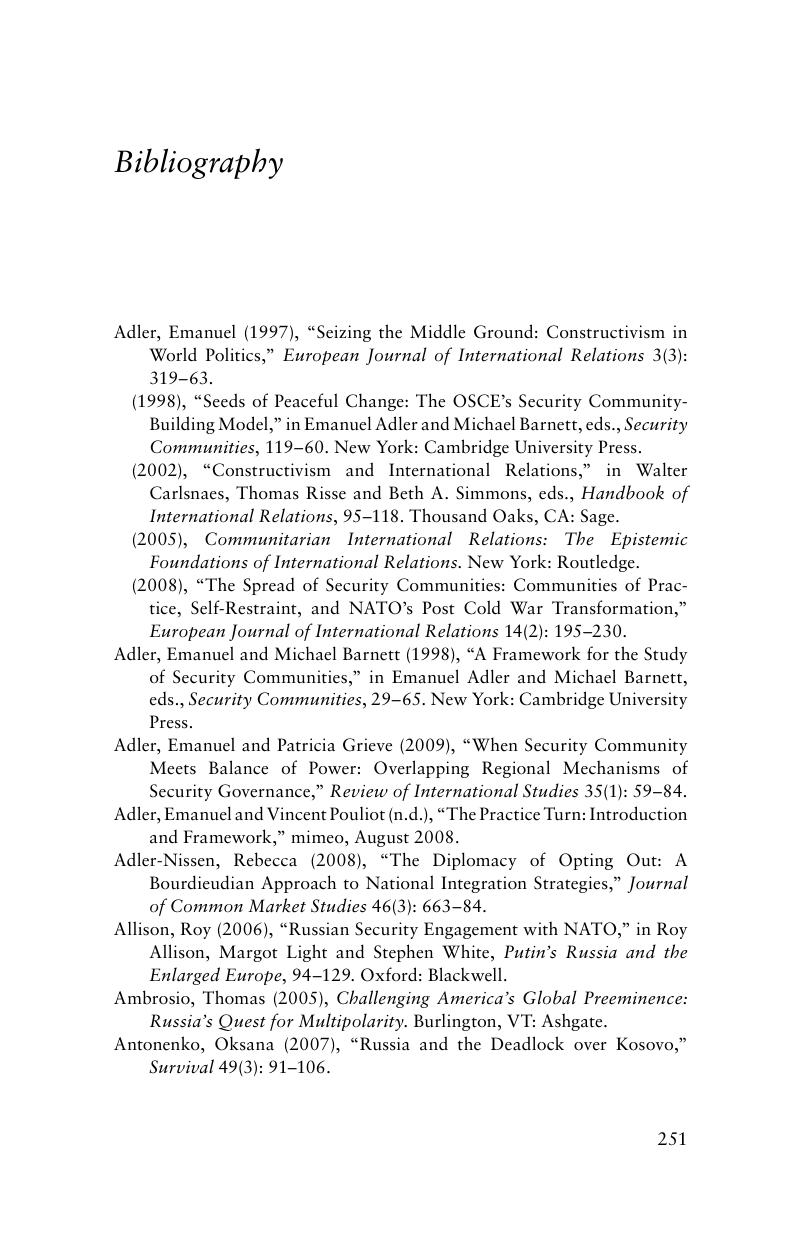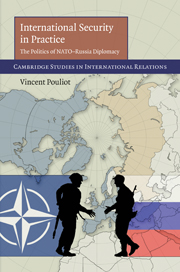Bibliography
Published online by Cambridge University Press: 03 May 2010
Summary

- Type
- Chapter
- Information
- International Security in PracticeThe Politics of NATO-Russia Diplomacy, pp. 251 - 274Publisher: Cambridge University PressPrint publication year: 2010

